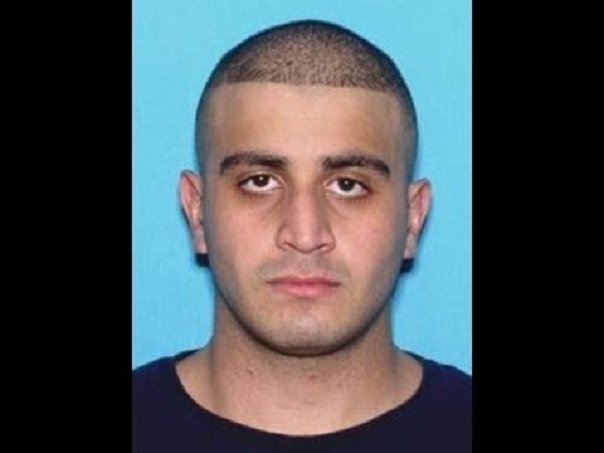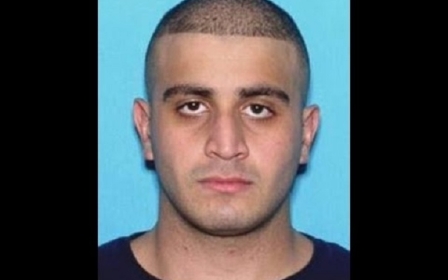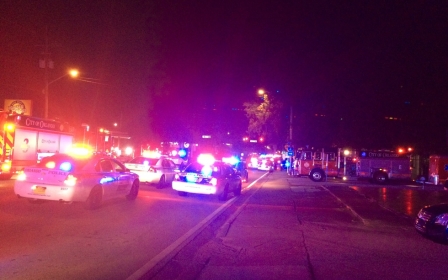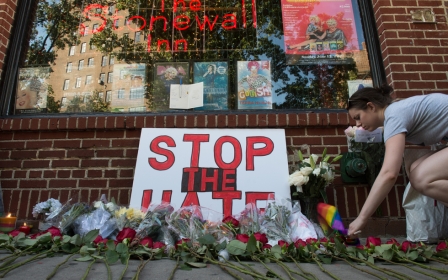White House demands gun legislation as officials investigate Orlando shooting

The White House on Monday demanded the Republican-controlled Congress pass legislation blocking militants from obtaining assault weapons, particularly the AR-15, the one used in the deadly shooting at a gay nightclub in Orlando.
"There are certain common sense things that Congress could do that would make it harder for any individual to get their hands on a weapon of war," said spokesman Josh Earnest.
"The president has been quite frustrated, and in some cases even angry, about congressional inaction," he said.
The White House singled out the AR-15, a semi-automatic assault rifle that used by Omar Mateen in a rampage that killed 49 revelers at the Pulse nightclub.
Earnest said the weapon was designed for the battlefield, not for Florida's streets.
For much of his eight years in office, President Barack Obama has butted heads with Congress over gun control.
In 1994, the US banned assault weapons but Congress failed to renew the ban ten years later.
The White House blamed Republican fear of the high-spending gun lobby - particularly the National Rifle Association - for the unwillingness by conservatives to vote for the ban.
The organisation pours tens of millions of dollars into the election campaigns of pro-gun politicians.
"The president believes that ban on assault weapons should be reinstated," Earnest said.
Gunman claims allegiance to conflicting armed groups
Law enforcement identified the Orlando gunman, who died in a shootout with police, as Omar Mateen, 29.
A US citizen, Mateen was born to Afghan parents in New York and resided in Port St Lucie, Florida, about two hours south of Orlando by car.
The FBI said it had previously investigated Mateen after he made inflammatory terror-related comments to co-workers and for suspected ties to an American suicide bomber, but the agency was unable to verify any links to known militants.
Mateen made three 911 calls during Sunday's massacre and told the dispatcher he pledged allegiance to several conflict resistance and militant groups, according to FBI Director James Comey.
“First he claimed family connections to al-Qaeda,” Comey said. “He also said he was a member of Hezbollah,” a Shia armed organisation currently fighting al-Qaeda and the Islamic State (IS) group in Syria.
IS claimed responsibility for the attack on Monday, calling Mateen "one of the soldiers of the caliphate”.
But US investigators are still piecing together his motives, as he also claimed solidarity with the Boston bombers and a Florida man who carried out a suicide bombing in Syria for the al-Nusra Front, which is in conflict with the IS group.
Comey said those facts added "a little bit to the confusion about his motives."
Law enforcement recovered a handgun, an AR-15 assault rifle and an unknown number of additional rounds from Mateen.
The gunman sprayed the club with bullets and took hostages in a three-hour standoff that ended when police stormed the venue.
Police chief John Mina said the authorities made that decision because they feared "further loss of life was imminent" among those still trapped in the venue.
Obama called the massacre "an act of terror and an act of hate."
Homophobia, not extremism
The suspect's father told NBC News his son may have been motivated by homophobia and not by extremism.
Seddique Mateen recalled a recent incident in downtown Miami when his son became angry after witnessing a gay couple embracing.
The suspect's ex-wife, Sitora Yusifiy, who divorced him in 2011, told reporters he had been violently abusive to her and was not especially religious.
“He was not a stable person,” she told The Washington Post. “He beat me. He would just come home and start beating me up because the laundry wasn’t finished or something like that.”
Acquaintances gave conflicting views about Mateen’s religiosity. Yusifiy said her former husband wasn’t very devout and preferred spending his free time working out at the gym. She said in the few months they were married he gave no signs of having fallen under the sway of radical Islam.
But one friend told the Washington Post that Mateen became steadily more religious after his divorce and went on a religious pilgrimage to Saudi Arabia.
“He was quite religious,” said the friend, who also spoke on the condition of anonymity. Yet, he added, if Mateen had sympathies for the Islamic State or other terrorist groups, he never mentioned them.
For several years, Mateen regularly attended the Islamic Center of Fort Pierce and was there as recently as two days ago, said Imam Shafiq Rahman on Sunday.
“He was the most quiet guy; he never talked to anyone,” Rahman told the Post. “He would come and pray and leave. There was no indication at all that he would do something violent.” Mateen never sought any spiritual guidance from him, Rahman said.
Mateen: A Pulse regular?
Despite accounts of Mateen’s growing religiosity, a number of Pulse regulars said that they have seen the killer at the nightclub several times before, according to an Orlando Sentinel report on Monday.
"Sometimes he would go over in the corner and sit and drink by himself, and other times he would get so drunk he was loud and belligerent," said Ty Smith.
He claims Mateen has been at the club “at least a dozen times”, according to the report.
"We didn't really talk to him a lot, but I remember him saying things about his dad at times," Smith said. "He told us he had a wife and child."
New MEE newsletter: Jerusalem Dispatch
Sign up to get the latest insights and analysis on Israel-Palestine, alongside Turkey Unpacked and other MEE newsletters
Middle East Eye delivers independent and unrivalled coverage and analysis of the Middle East, North Africa and beyond. To learn more about republishing this content and the associated fees, please fill out this form. More about MEE can be found here.




